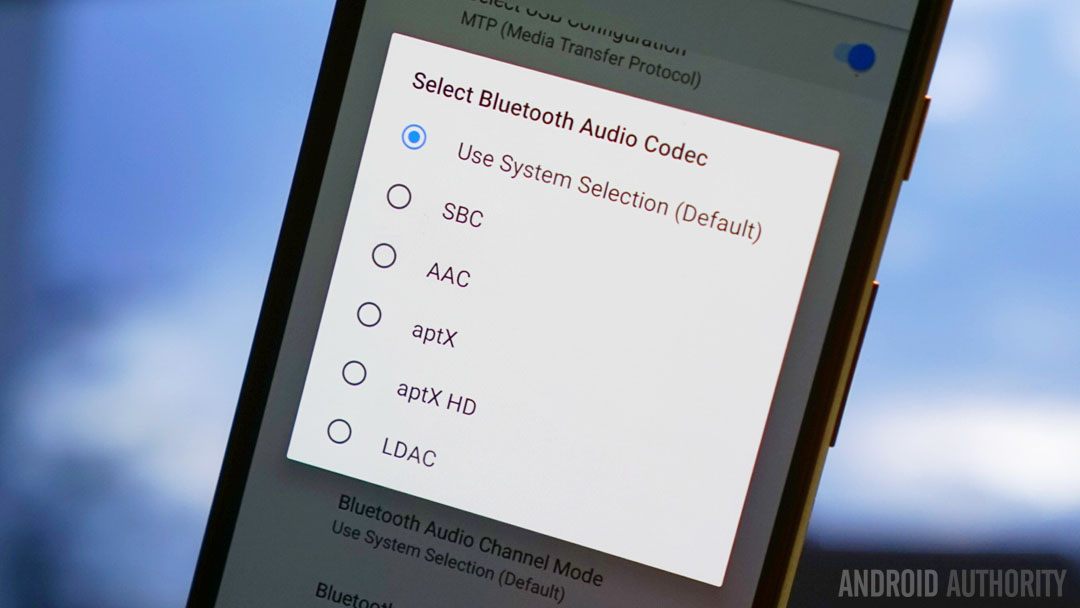

Smartphone manufacturers all but took away our beloved phones with headphone jacks. Now we’re left buying admittedly great wireless earbuds hand over fist. But listening to music is no longer a straightforward plug-and-play experience. Instead, we must ensure the buds support the same features as our smartphones to ensure the best audio quality. Wireless earbuds offer plenty of conveniences, but there’s some confusion around Bluetooth codecs. We’ll get you up to speed on everything you need to know about any Bluetooth audio codec. By the end of this, you’ll be able to match the right audio codec to your needs.

A Bluetooth audio codec is a digital encoder and decoder that compresses audio data as it’s transferred from your phone to your wireless earbuds. Ideally, a source device (e.g. a smartphone) will send a high-fidelity audio signal to the receiver (e.g. earbuds) without dropping the connection.
Before we go further, here are some audio terms you will want to familiarize yourself with:
When checking out your buds’ Bluetooth codec specs, don’t get too caught up in the “bigger is better” mentality. Humans cannot perceive anything above 16-bit/44.1kHz audio; we can only register that if we have perfect hearing. Considering hearing abilities decrease with age, it’s likely that you and I have some damaged stereocilia. On top of that, these high-bitrate Bluetooth codecs (24-bit or greater) are not always lossless. For now, most of us are stuck with lossy audio because of Bluetooth’s current bandwidth limitations.
Limited human hearing aside, transferring more data also risks creating an unstable connection. There may be a greater chance of interference if you’re in a busy area full of other people using wireless earbuds. A lower bitrate offers more connectivity headroom but also means the audio file is more compressed than a high bitrate file, but not all compression is equal.
When shopping for Bluetooth codecs, remember human hearing has its limits. Sometimes a stable connection is better than the highest bitrate.
Then there’s the issue of Bluetooth latency. Years ago, there was a marked variation between popular smartphones and their Bluetooth latency measurements. According to data from Google, the average latency of the most popular Android devices was 109ms in 2017 but the most popular phones in 2021 averaged 39ms. This is quite an improvement as most people can’t perceive latency less than 20ms, but latency is something to keep in mind, particularly for gaming.